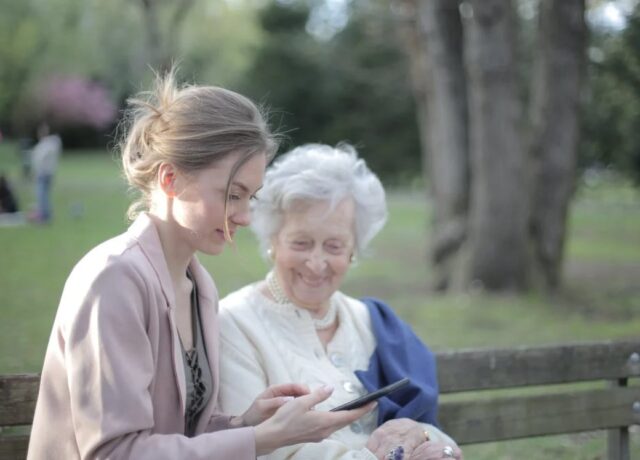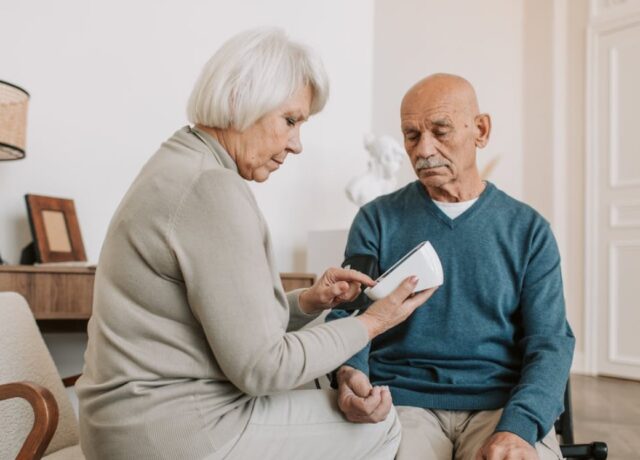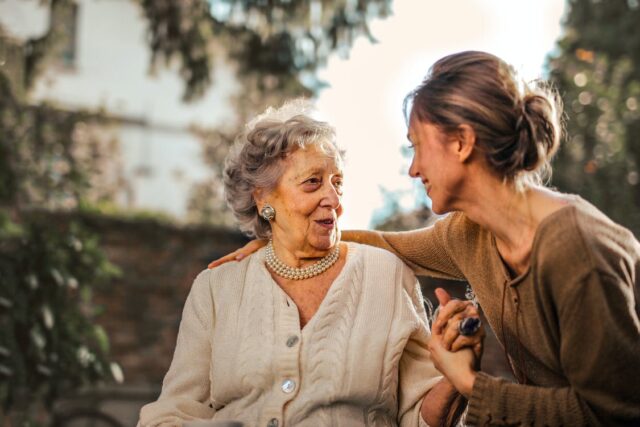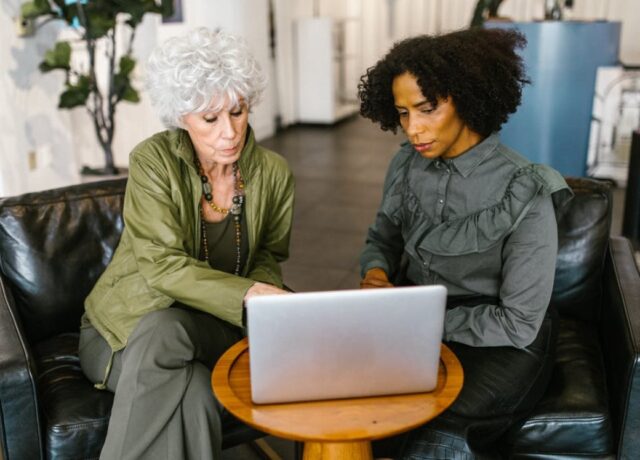
As our parents and grandparents age, many of us start to feel more concerned about their well-being. Maybe they are becoming more dependent upon others to live in their home, or they may even have to make the transition to a long-term care facility.
For the elderly, living independently is ideal, but not if it means abandoning their previously busy and involved daily routine. If you are unable to assist your parent in attending social, religious, athletic, or other events that they once enjoyed, hire a companion or seek the assistance of others in similar organizations.
No matter what their living situation is, we continue to worry about them. Since we love them and care for them, we want to know that they are safe, healthy, and supported.
Elderly populations are at a greater risk for health issues, are often targeted in scams, and usually moving toward less independence.
Thankfully, there are a myriad of ways that we can help protect our older family members from some of these issues. If you have concerns about their well-being, here are some helpful ways that you can keep them safe.
1. Home security practices

Our older family members are physically more vulnerable as they age. This leaves many of their loved ones feeling concerned for their safety at home. While home security simply meant locking the doors and windows when your loved ones were younger, there are now plenty of advanced security technologies that can be implemented on their property. New apps can maintain connectivity with a home’s security system as well, ensuring that you know what’s happening when you are not around or if there is an emergency. Having some type of security measures installed could bring peace of mind to both your loved one and yourself.
Seniors who live alone are vulnerable to any form of fall or harm. As a result, when caring for the elderly at home, safety is paramount. Though some substantial changes may be required, the most of the measures required to make a senior’s house safe and inclusive take only a few pairs of hands and minimum DIY abilities.
2. Encourage the use of wearable devices

Elderly individuals have many available options for wearable technology that can provide support if something goes wrong. Medical alert bracelets allow for instantaneous communication in the case of an emergency with the push of a button. Other devices like fitbits or smart watches can track health behaviors like sleep, heartbeat, and movement that can help identify potential health problems if significant changes occur. They can also help encourage a physically healthy lifestyle as a motivation to exercise. The more exercise one gets, the more likely they are able to fight off diseases.
3. Be vigilant about long-term care facilities

Although we hope that nursing homes and other similar environments have the best interests of our loved ones at heart, there are instances of neglect or abuse. According to NursingHomeLawCenter.org, thousands of cases of elder abuse happen every year in nursing homes. In order to avoid this with your family member, make sure to vet the facility yourself before allowing them to move in. Look for online reviews, listen to word-of-mouth recommendations, and keep a close eye when you are touring or visiting the location. See if the staff seem friendly and supportive to the residents. You can even research incident reports to find out if a facility has a pattern of abuse or neglect. Making sure that the facility is safe is the best way to protect your loved one in this environment.
4. Talk with them about the reality of scams

Elderly populations are the most vulnerable to internet and phone scams, and the last thing we want to see is them getting ripped off by a stranger. In order to help them avoid being taken advantage of, have conversations about how common scams really are, especially for older individuals. According to the FBI, seniors lose an average of $3 billion every year to scams, an astonishing number. Scams can take many forms as well, including tech support, government impersonators, sweepstakes, home repair, and caregivers. Educate your loved ones about the different types of scams that can occur, and what signs to watch out for that indicate they are dealing with a fraudulent scheme.
Further, to protect your elderly parents you can take a close relative or trusted neighbor as a personal assistant with CDPAP – the Consumer Directed Personal Assistant Program. The Personal Assistant you select for CDPAP will be paid for providing the loving care only someone close to you can do.
5. Easy and Safe Transportation

Turning over the keys is typically the most distressing loss elders suffer after losing mobility, but that’s no justification for not moving around. There are many senior transportation options available; all it takes is some study and effort to put together a safe driving strategy.
6. Stay connected

Possibly the best practice for protecting your aging parents or grandparents is to stay in touch with them. Regular visits, phone calls to check in, and general awareness of what they are up to will help keep them safe from many different issues. Visits and calls can help improve their mental state, give you a platform to ask them how they are doing or if they have encountered health issues, and can even encourage them toward healthier habits like a balanced diet or a walk with the family. You can also more readily notice if behaviors have changed if you are in touch with them frequently, which can indicate if something is wrong or could be a concern going forward. Consistent communication is key to keeping your loved one safe.
7. Be prepared for uncomfortable conversations

It can be unnerving to try to broach some of these conversations with a parent or grandparent. The reality of aging means that we lose some of our independence, something that we have had for decades. Be sensitive to the fact that these topics will not always be easy to bring up or talk about. However, they may be necessary to protect your loved one. You can find resources and helpful tips online with best practices for bringing up these subjects, so make sure that you do some research before jumping into the deep end.









